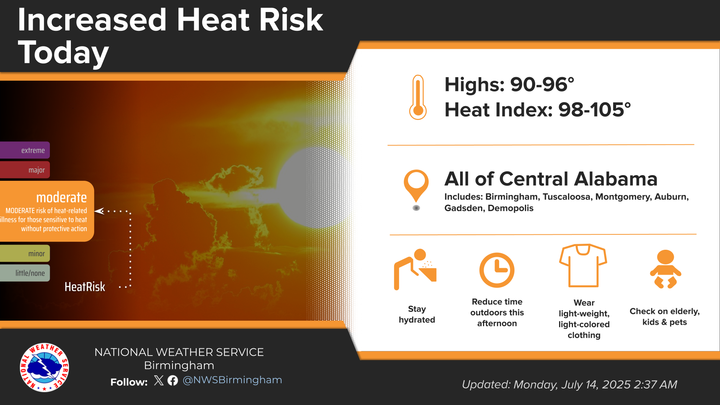A mystery illness has sickened seven people in southeastern Alabama, killing two of them – that, according to the state Health Department, however, it’s still not clear whether the patients or their symptoms are connected. “At this time there’s no epidemiological link between these patients,” an Alabama health department document states in bold type.
The patients’ ages range from their mid-20s to their late 80s, Dr. Mary McIntyre, who is leading the investigation, told ABCNews.com in an email. Location aside, McIntyre said the patients had no commonalities other than that the “majority” of them had “co-morbidities like smoking, COPD, morbid obesity.”
“Temporal clustering can make something look like an outbreak,” said Dr. Richard Besser, chief health and medical editor for ABC News. “Good science will tell you whether it is.”
The illnesses started with common flu-like symptoms — shortness of breath, a cough and a fever. But both patients who died had come down with pneumonia, McIntyre said.
Besser said most pneumonia patients are never tested to determine what caused their infection, but the Centers for Disease Control and Prevention could offer “state of the art” diagnostic testing to explain the Alabama cases. Health officials will also question the patients’ families and friends to determine common exposures and whether the patients ever had contact with one another.
The first three cases were reported to the health department on May 16 because the patients were on ventilators but had no known cause for their illnesses, according to a health department document. The most recent case was reported May 19.
One of the patients tested positive for H1N1, the “swine flu” that began in spring 2009 and peaked the following October, according to a health department document. Another patient tested for a strain of influenza called AH3.
It’s not yet clear whether either flu played a role in this cluster of illnesses, the document states. The five patients who are still living seem to be getting better, McIntyre said. One of them was released Tuesday.
(ABC News Radio)
UPDATED
The Alabama Department of Public Health (ADPH) and the Houston County Health Department
Have determined that the cause of a respiratory illness cluster in southeast Alabama was actually a combination of influenza A, rhinovirus, the virus associated with the common cold, and bacterial pneumonia.
“This is good news. Testing has ruled out avian flu and novel coronavirus,” said State Health Officer Dr. Don Williamson.
Earlier this month, seven patients were admitted to the hospital with fever, cough and shortness of breath with no known cause for their illness. Public health officials began an epidemiological
investigation to interview the families of the patients about travel and exposure. Specimens were
requested and submitted to the ADPH Bureau of Clinical Laboratories in Montgomery.
Of the seven patients whose specimens were submitted, six were found to be positive for either influenza A, rhinovirus or a combination of the two, and three patients were found to have bacterial pneumonia.
Two of the seven patients eventually died.
Dr. Mary McIntyre, assistant state health officer for disease control and prevention, said, “While
enhanced surveillance associated with this cluster is no longer necessary, health care providers are encouraged to continue routine year-round influenza surveillance activities and submit specimens to the state laboratory for testing.”
Health care providers should always use standard precautions when dealing with patients with
respiratory illness.
If you or your family members have respiratory symptoms of fever, cough and shortness of breath, please contact your health care provider to be evaluated. In addition, everyone should take steps to prevent transmission of disease and are reminded to follow these precautions:
Cover your cough or sneeze with a sleeve or tissue.
Wash your hands often with soap and water, especially after you cough or sneeze. Alcohol-based hand sanitizers are also effective.
•
Avoid touching your mouth, eyes and nose with your hands. Try to avoid close contact with sick people.
•
If you get sick, stay home and limit contact with others to avoid infecting them.




